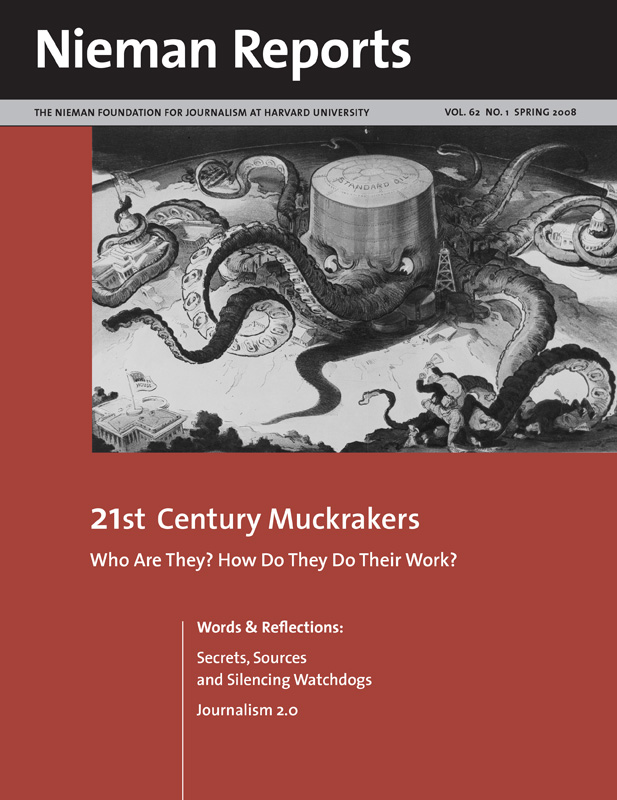RELATED ARTICLES
“Teaching Multimedia Journalism”
– Rebecca MacKinnon I haven’t found a comparable guide to Briggs’s book written with non-American journalists in mind. The “Introduction to Global Citizen Media,” published by Rising Voices, another Knight Foundation grantee, makes a step toward filling the gap at least for nonprofessionals. (Disclosure: I am cofounder of Global Voices, Rising Voices’ parent organization.) The “Handbook for Bloggers and Cyber-Dissidents,” published by Reporters Without Borders in 2005, fills another small part of the picture, though some of it is already out of date. Global Voices Advocacy (my earlier disclosure applies) is working to write guides for online anonymity, privacy and circumventing censorship that will be useful for professional or citizen journalists.
RELATED WEB LINK
Download "How to Write for the Web," a Spanish-language book by Guillermo Franco »Mindy McAdams, Knight Chair for Journalism Technologies and the Democratic Process at the University of Florida, has made available two excellent, freely downloadable guides to audio editing with Audacity. There are also very good, user-friendly online texts to be found at the University of California at Berkeley’s Multimedia and Technology Training Web site and at the J-Lab’s J-Learning Web site. (All of these resources are funded by the Knight Foundation, including McAdams’s chaired professorship. Given this, it would make sense for Briggs’s book to refer readers to these resources for further study and practice.) Web links for these digital journalism resources are listed below. — R.M.
“Teaching Multimedia Journalism”
– Rebecca MacKinnon I haven’t found a comparable guide to Briggs’s book written with non-American journalists in mind. The “Introduction to Global Citizen Media,” published by Rising Voices, another Knight Foundation grantee, makes a step toward filling the gap at least for nonprofessionals. (Disclosure: I am cofounder of Global Voices, Rising Voices’ parent organization.) The “Handbook for Bloggers and Cyber-Dissidents,” published by Reporters Without Borders in 2005, fills another small part of the picture, though some of it is already out of date. Global Voices Advocacy (my earlier disclosure applies) is working to write guides for online anonymity, privacy and circumventing censorship that will be useful for professional or citizen journalists.
RELATED WEB LINK
Download "How to Write for the Web," a Spanish-language book by Guillermo Franco »Mindy McAdams, Knight Chair for Journalism Technologies and the Democratic Process at the University of Florida, has made available two excellent, freely downloadable guides to audio editing with Audacity. There are also very good, user-friendly online texts to be found at the University of California at Berkeley’s Multimedia and Technology Training Web site and at the J-Lab’s J-Learning Web site. (All of these resources are funded by the Knight Foundation, including McAdams’s chaired professorship. Given this, it would make sense for Briggs’s book to refer readers to these resources for further study and practice.) Web links for these digital journalism resources are listed below. — R.M.
- Mark Briggs’s “Journalism 2.0: How to Survive and Thrive” (pdf)
Spanish and Portuguese editions - U.C. Berkeley’s Multimedia and Technology Training Web site
- J-Lab's J-Learning Web site
- Mindy McAdams’s audio editing guides
- Handbook for Bloggers and Cyber-Dissidents
- Introduction to Global Citizen Media
- Global Voices Advocacy tools and guides



